Cell And Developmental Biology
-
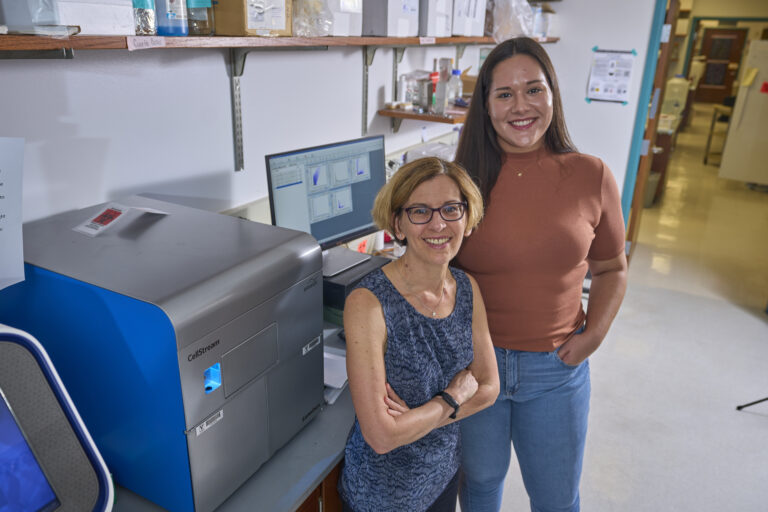
Vanderbilt scientists develop new tool that could lead to noninvasive “liquid biopsies”
Researchers from the School of Medicine Basic Sciences recently developed an analytical tool called EV Fingerprinting that could lead to the use of “liquid biopsies” as a substitute for traditional biopsies for certain patients or diseases. Read MoreJul 15, 2024
-

Lau lab publishes authoritative reference article on the hallmarks of precancer
Ken Lau, professor of cell and developmental biology, and colleagues have laid out the principles governing the biology of early, precancerous lesions, which are different from the principles that govern cancers. Their authoritative perspective was published in Cancer Discovery in April 2024. Read MoreMay 9, 2024
-

-

A $3M NSF grant to advance biomanufacturing could help establish an innovative method to deliver medicines to cells
Trans-institutional project connects Vanderbilt experts in drug delivery, stem cell engineering, biomanufacturing and cell biology to advance biomanufacturing of nanoparticles that can deliver precisely targeted drugs to the site of a disease. Read MoreSep 28, 2023
-

Apex Lecture Series: ‘Stress Signaling at the Crossroads of Development and Disease’ is Sept. 29
Co-sponsored by the Department of Biochemistry, this session of the School of Basic Medicine's Apex Lecture Series features developmental biologist Michael Rapé. Read MoreSep 18, 2023
-
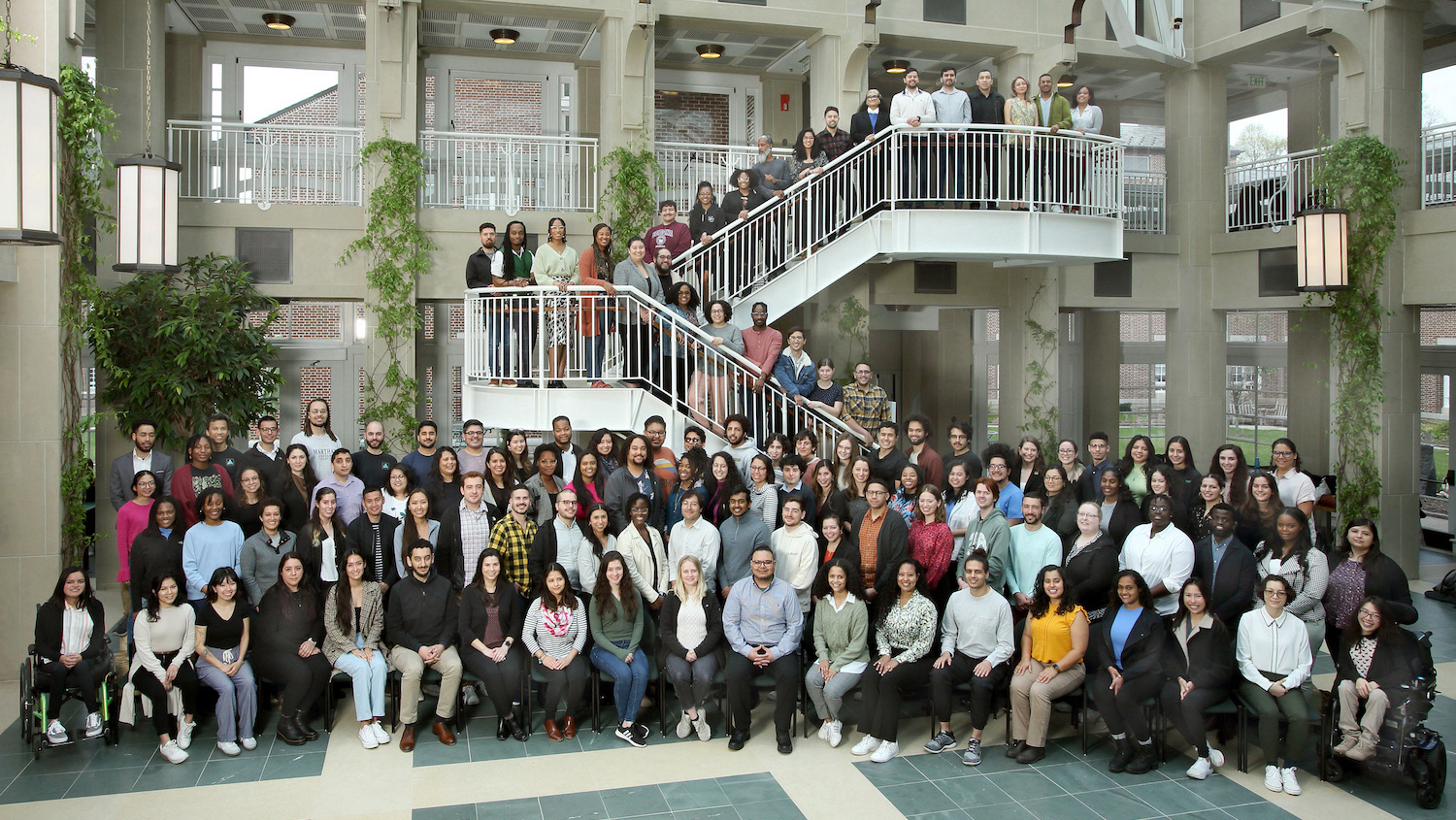
Two Vanderbilt School of Medicine Ph.D. students, their faculty advisers selected for HHMI Gilliam Fellows Program
Four Vanderbilt graduate students, faculty advisers named to Howard Hughes Medical Institute Gilliam Fellows Program for their leadership in science and commitment to advancing equity and inclusion in science. Read MoreAug 4, 2023
-

Vanderbilt and Bruker establish first of its kind Mass Spectrometry Center of Excellence
Vanderbilt and Bruker Daltonics are collaborating to establish a Mass Spectrometry Center of Excellence with four state-of-the-art mass spectrometers to advance biomedical research and discovery. Read MoreMay 2, 2023
-

Department of Cell and Developmental Biology seminar series continues May 8
The department of cell and developmental biology will continue its seminar series this May. On May 1, Dr. Pascal Kaeser presents: “Mechanisms and Roles of Fast Dopamine Signaling," and Dr. Jason Spence presents: “Interrogating stem cell niches during human development" on May 8. Read MoreApr 26, 2023
-
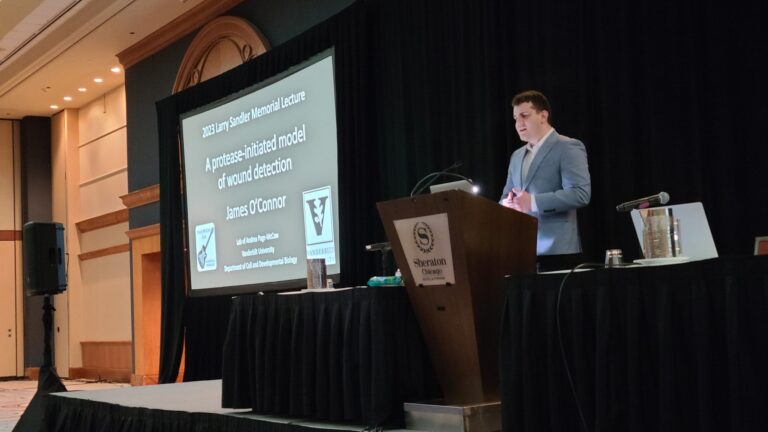
O’Connor’s dissertation named top 2022 Drosophila dissertation worldwide
The Genetics Society of America has presented James O’Connor, a Ph.D. graduate from the Department of Cell and Developmental Biology, the 2023 Larry Sandler Award. This international award recognizes the best Ph.D. dissertation on Drosophila—a fly genus that includes the fruit fly, a widely used model organism in biomedical research—from the previous year. Read MoreMar 30, 2023
-

New screening method could pave the way for future cancer drug discoveries
The laboratories of Brian Bachmann and Jonathan Irish have developed a method to discover new small molecules that may kill cancer cells by working through the body’s immune system. Read MoreJan 17, 2023
-
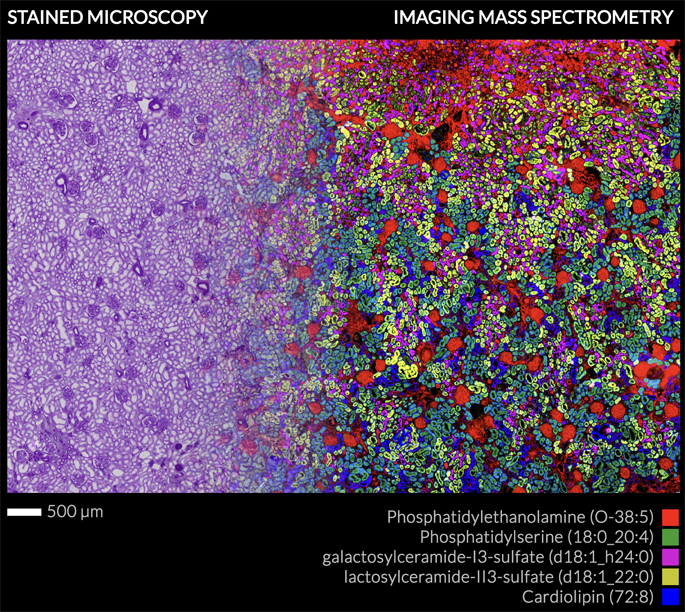
Spraggins, Caprioli win $13.6M from NIH to create “atlases” of the brain, kidney and eye
Researchers in the Vanderbilt University School of Medicine have received three grants totaling $13.6 million from the National Institutes of Health to develop molecular “atlases” of the brain, kidney, eye and other tissues. Read MoreNov 18, 2022
-

Lee named 2022 Innovation Fund investigator by The Pew Charitable Trusts
Ethan Lee, professor of cell and developmental biology and pharmacology, has been named a 2022 Innovation Fund investigator by The Pew Charitable Trusts. Read MoreSep 27, 2022
-

Research Snapshot: New aging-related molecular pathway discovered
A collaborative project between the labs of Maulik Patel and Kris Burkewitz has identified a new molecular pathway that plays a key role in the ability of cells to sense and respond to stressed mitochondria. Read MoreJun 23, 2022
-

Research Snapshot: Researchers identify new cell subtype in early-stage pancreatic cancer
The lab of Kathy DelGiorno seeks to understand changes in the pancreas in response to injury and disease. In a recent project led by graduate student Leah Caplan, the lab investigated the formation of enteroendocrine cells throughout pancreatic tumor development. Read MoreJun 17, 2022
-

Research Snapshot: Collaborative research lays groundwork for potential treatment of a rare and deadly type of cancer
A collaborative project between William Tansey and Stephen Fesik has laid the foundation for pre-clinical and clinical trials for rare childhood tumors that are diagnosed in 25 children per year in the United States. Read MoreApr 22, 2022
-
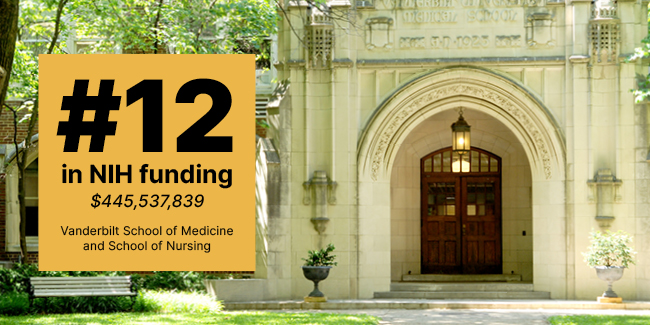
Vanderbilt ranks 12th in annual survey of NIH funding; 2021 awards topped $445M
Vanderbilt University again ranked among the nation’s top research institutions receiving funding from the National Institutes of Health, according to the latest data compiled by the Blue Ridge Institute for Medical Research. Read MoreMar 31, 2022
-

Jon Kaas receives Society for Neuroscience’s highest honor for pathbreaking cerebral cortex research
Distinguished psychology professor Jon Kaas has received the Ralph W. Gerard Prize in Neuroscience, the highest recognition from the Society for Neuroscience, for his pathbreaking work in illuminating the structure and function of the cerebral cortex and plasticity in the developing and adult brain. Read MoreNov 23, 2021
-

Burkewitz awarded $100,000 to conduct longevity research at the cellular level
Kristopher Burkewitz, assistant professor of cell and developmental biology, has been awarded $100,000 from the American Federation for Aging Research and the Glenn Foundation for Medical Research to research the biological aging process. Read MoreNov 22, 2021
-

Learn about the science of longevity with Vanderbilt experts in virtual event
The School of Medicine Basic Sciences’ monthly Lab-to-Table Conversation will bring together research experts on Tuesday, Nov. 30, for a virtual discussion about our current understanding of the biology of longevity. Read MoreNov 15, 2021
-

Research Snapshot: Discovery shows how synapses are built and function in the nervous system
Discovering a signaling pathway’s influence on brain development in a nematode sheds light on human nervous systems. Est. reading time: 2 mins. Read MoreNov 8, 2021